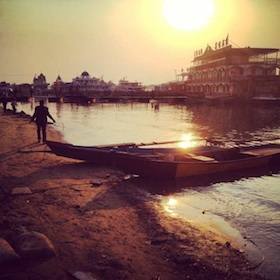 In China as in the Soviet Union, it seemed particularly cruel to “political” prisoners that thieves, rapists, and murderers should be placed higher in the camp hierarchy than they were. From the perspective of the CCP, this often touched on the point of class origins, for of course the intellectual class often emerged from the urban bourgeoisie, whereas the common criminals come from the dodgy, poor neighborhoods or, in their rural equivalent, poor, burned-out villages. However, what the victorious revolutionaries sought to achieve was the laborious process of lifting the world off of its axle and inverting it, like a gigantic bureau drawer; of course all sorts of things fall out, and if they are delicate, shatter. The intellectual class was, and is, that class which had already begun lifting themselves out of the material world, on their own terms, with thought. For those authorities who wish to arrange a collective transfer of all resources and persons from the old world into a still unimaginable new one, this individualistic secession from the world is a most dangerous form of treason, in comparison to which the rapes, knifings, stolen bread, and liquor of the underclass are all too easy to forgive. For the latter are simply operating the system in their own disadvantaged way, with the same objectives, finally, as the capitalists and lords, whereas the thinkers seek to float away entirely. It is for this reason that in the camps, the political prisons were considered “external contradictions,” the criminals, “internal contradictions.”
In China as in the Soviet Union, it seemed particularly cruel to “political” prisoners that thieves, rapists, and murderers should be placed higher in the camp hierarchy than they were. From the perspective of the CCP, this often touched on the point of class origins, for of course the intellectual class often emerged from the urban bourgeoisie, whereas the common criminals come from the dodgy, poor neighborhoods or, in their rural equivalent, poor, burned-out villages. However, what the victorious revolutionaries sought to achieve was the laborious process of lifting the world off of its axle and inverting it, like a gigantic bureau drawer; of course all sorts of things fall out, and if they are delicate, shatter. The intellectual class was, and is, that class which had already begun lifting themselves out of the material world, on their own terms, with thought. For those authorities who wish to arrange a collective transfer of all resources and persons from the old world into a still unimaginable new one, this individualistic secession from the world is a most dangerous form of treason, in comparison to which the rapes, knifings, stolen bread, and liquor of the underclass are all too easy to forgive. For the latter are simply operating the system in their own disadvantaged way, with the same objectives, finally, as the capitalists and lords, whereas the thinkers seek to float away entirely. It is for this reason that in the camps, the political prisons were considered “external contradictions,” the criminals, “internal contradictions.”
|
|
||||
|
Telos Press Publishing · PO Box 811 · Candor, NY 13743 · Phone: 212-228-6479 Privacy Policy · Data Protection Copyright © 2024 Telos Press Publishing · All Rights Reserved |
||||







